The French Bulldog, with its bat-like ears, short snout, and playful demeanor, is a beloved companion for many pet owners worldwide. However, their unique physique and size mean their dietary needs can be different from other breeds. If you’re a French Bulldog owner or considering adopting one, understanding how much to feed them is vital for their health and well-being.
1. Understanding the French Bulldog’s Dietary Needs
French Bulldogs are small, but they’re also muscular and active. They usually weigh between 16-28 pounds, with males typically being slightly heavier than females. Because of their compact size, they don’t require a vast amount of food, but they need nutrient-rich meals to support their energy levels.
2. Determining the Right Amount of Food
The amount of food your French Bulldog requires depends largely on their age, weight, activity level, and the calorie content of the food you’re providing:
- Puppies: They’re growing rapidly and need more calories than adults. Typically, a French Bulldog puppy will require around 500-600 calories per day. This might be more than an adult dog, even though they’re smaller, due to their growth and energy demands.
- Adults: An adult French Bulldog that’s moderately active will typically need about 25 calories per pound of body weight. So, a 20-pound adult would need roughly 500 calories per day.
- Seniors: Older dogs are usually less active and might require fewer calories. A senior French Bulldog might only need about 400-450 calories per day.
Remember to check the calorie content on your dog food’s packaging to determine how much to serve. Most quality dog foods will provide a guideline based on weight, but always monitor your dog’s weight and adjust as necessary.
3. Choosing the Right Dog Food
Just as important as the quantity of food is its quality. French Bulldogs can be prone to allergies, so it’s essential to select a high-quality dog food without fillers or common allergens. Look for foods with meat as the primary ingredient and avoid those with unnecessary fillers like corn or soy.
4. How Often to Feed Your French Bulldog
It’s generally recommended to split your dog’s daily food amount into two meals. This approach can aid digestion and keep their energy levels consistent.
For puppies, three to four small meals per day might be beneficial, transitioning to two meals around six months of age.
5. Treats and Extras
Everyone loves to spoil their pets, but remember that treats and extra snacks count toward their daily calorie intake. Keep treats to a minimum and opt for healthy choices when possible.
6. Monitoring Weight and Adjusting Portions
It’s essential to monitor your French Bulldog’s weight regularly. These dogs can easily become overweight, which puts extra strain on their joints and can lead to other health issues. If you notice your pet gaining unnecessary weight, consider adjusting their food portions or increasing their exercise.
7. Cost of Feeding a French Bulldog
The monthly cost of feeding your Frenchie will depend on the brand and type of food you choose. If we assume an average cost of $2-$3 per pound for high-quality dog food, and your dog consumes about 1-1.5 pounds of food per day, you’re looking at roughly $60-$90 per month. Remember, investing in quality food can lead to fewer health issues and vet bills down the road.
8. Special Dietary Considerations
Some French Bulldogs might have specific dietary needs or allergies. If you notice signs of food allergies (itching, digestive issues, etc.), consider switching to a hypoallergenic diet and consulting with your veterinarian.
9. Hydration is Key
Always ensure that your French Bulldog has access to fresh water. Proper hydration aids digestion and keeps your pet healthy.
Our 5 Top Foods for French Bulldogs
The diets were selected by our founder Justin Palmer, a certified canine nutrition expert, specifically with French Bulldogs in mind:
| Food | Pros | Cons |
|---|---|---|
|
|
|
|
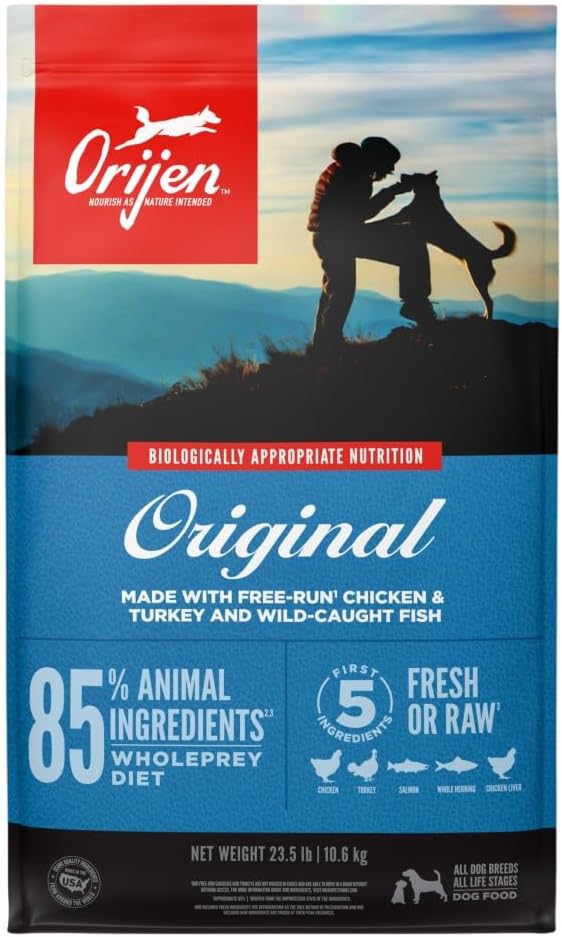
Check Today's Price on: |
|
|
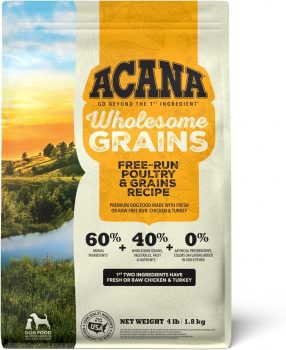
Check Today's Price on: |
|
|
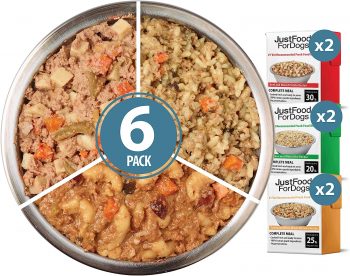
Check Today's Price on: |
|
|
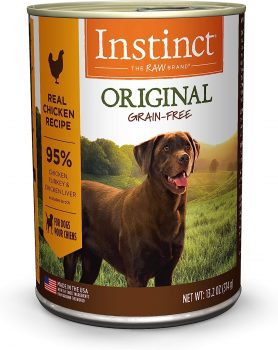
Check Today's Price on: |
|
|
Conclusion
Feeding your French Bulldog the right amount of nutritious food is crucial for their well-being. Always be mindful of their weight, consult with your vet about their specific needs, and choose high-quality foods that meet their dietary requirements.
Frequently Asked Questions About Feeding a French Bulldog
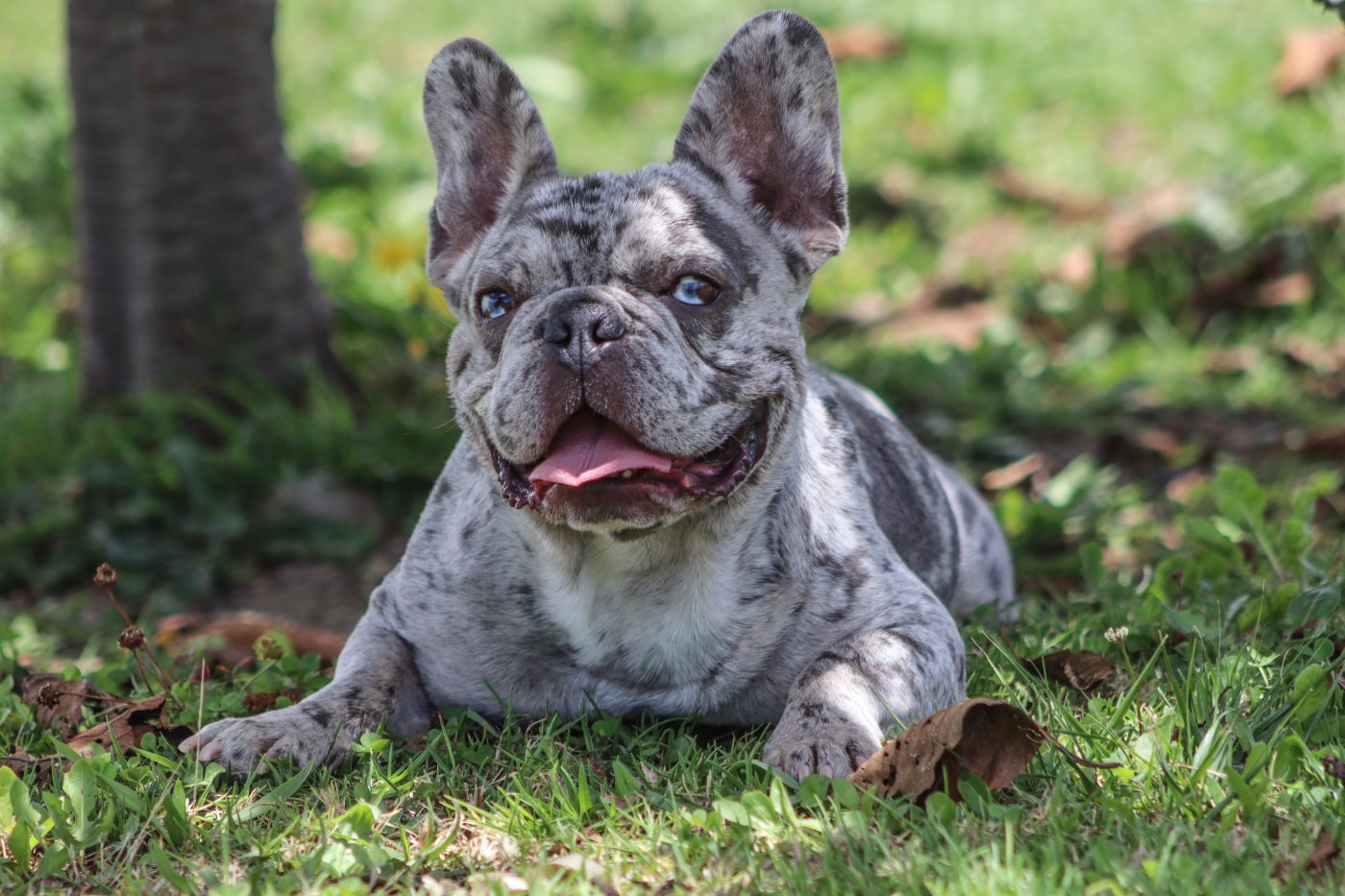
1. How many times a day should I feed my French Bulldog?
Feed adult French Bulldogs twice a day: once in the morning and once in the evening. Puppies require more frequent feedings of three to four times a day until they’re around six months old, at which point you can transition to twice daily.
2. Are there specific food brands recommended for French Bulldogs?
There isn’t a one-size-fits-all answer, as the best food for your Frenchie will depend on their specific needs, allergies, and preferences. However, it’s crucial to choose high-quality dog foods with meat as the primary ingredient and avoid those with unnecessary fillers like corn or soy.
3. My French Bulldog is gaining weight. What should I do?
Monitor the calorie intake and ensure you’re not overfeeding. Also, increase their exercise and playtime to help burn off excess calories. If weight gain continues or if you’re unsure about the appropriate portion size, consult with your veterinarian.
4. Can I feed my French Bulldog human food?
While some human foods are safe for dogs in moderation, others can be toxic. Always research before sharing, and avoid giving foods like chocolate, grapes, onions, and garlic. It’s generally best to stick to dog-specific foods and treats.
5. How can I tell if my French Bulldog has a food allergy?
Signs of food allergies in dogs include itching, redness, ear infections, and gastrointestinal issues. If you suspect your Frenchie has a food allergy, consult with your veterinarian. They might recommend an elimination diet to pinpoint the culprit.
6. Should I give my French Bulldog wet or dry food?
Both wet and dry foods have their benefits. Wet food can be more palatable and hydrating, while dry food can be better for dental health. Some owners choose to mix both. Whichever you choose, ensure it’s high quality and suitable for your dog’s life stage and needs.
7. How much water should my French Bulldog drink daily?
Water consumption can vary based on activity level, diet, and weather, but a general guideline is that dogs should drink about 0.5 to 1 ounce of water per pound of body weight daily. Always ensure your Frenchie has access to fresh water.
8. Are grain-free diets good for French Bulldogs?
Grain-free diets have become popular, but it’s essential to consult with your veterinarian before making a decision. Some dogs might benefit from grain-free foods, especially if they have specific grain allergies, while others might not.
9. My French Bulldog seems uninterested in their food. What should I do?
First, ensure they’re in good health by consulting a veterinarian. If health issues are ruled out, consider rotating protein sources, switching to a different brand, or adding a bit of wet food to make their meals more appealing.
10. Can I give my French Bulldog supplements?
While some supplements can benefit dogs, it’s essential to discuss them with your veterinarian before introducing anything new to their diet. Over-supplementing or giving unnecessary supplements can be harmful.
 Check Today's Price on:
Check Today's Price on: Toledo, United States.
Toledo, United States.